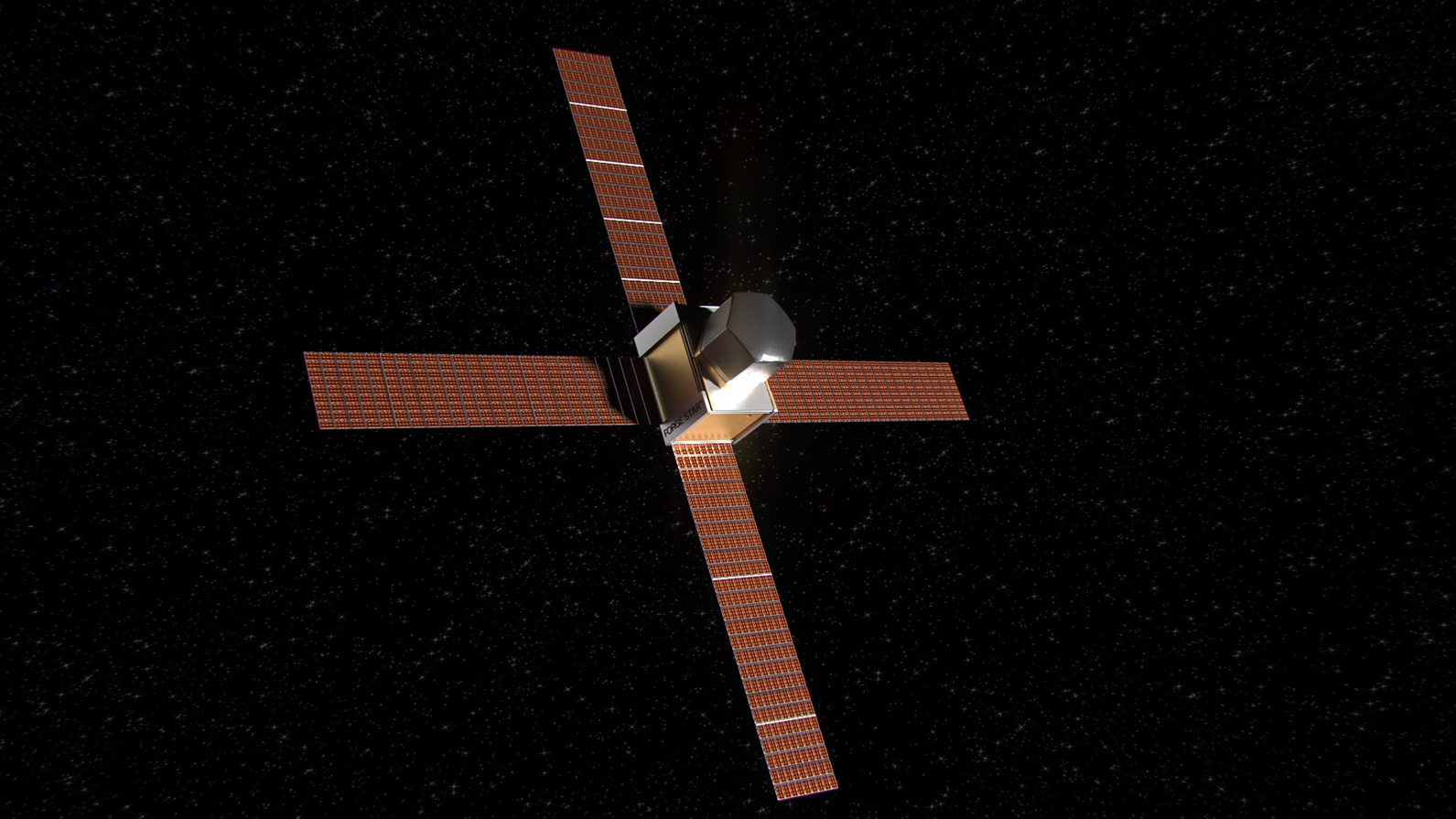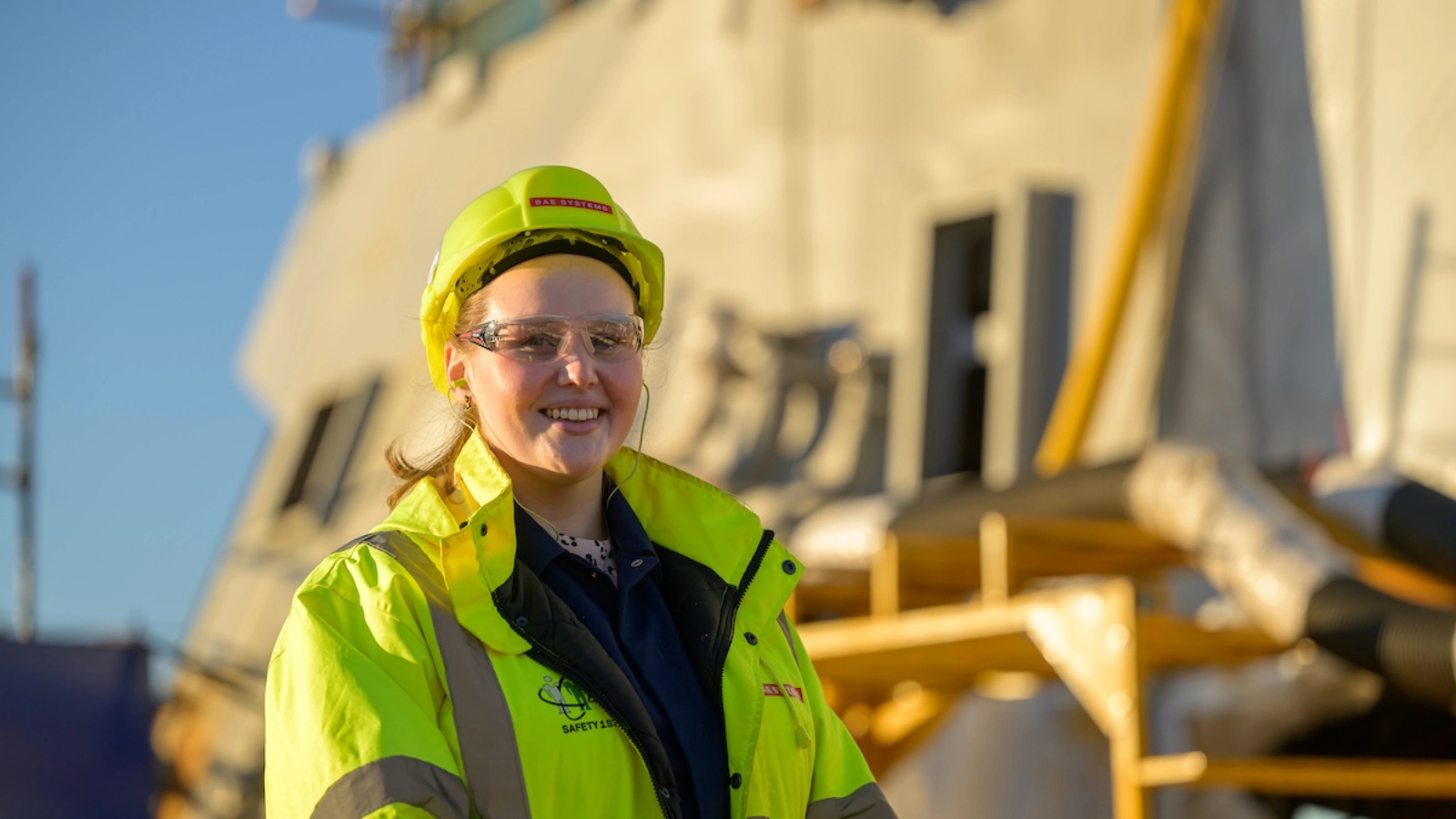Apprentices among those shortlisted in climate satellite design competition

Image courtesy UK Space Agency (UKSA)
The Nanosat Design Competition opened for entries in November 2021, with aspiring space scientists invited to design a small satellite for launch from the UK to help inform solutions to climate change.
More than 40 teams from across the UK and aged between 16 and 37 submitted detailed applications. Many had little or no previous experience of designing small satellites before entering the competition, which aims to encourage more young people to consider a career in the UK’s thriving space sector.
Five teams have now been selected to progress to the next phase of the competition, which includes a four-month mentoring programme with space industry experts, ahead of final judging in May.
The teams hail from Huddersfield, Glasgow, Kent, Buckinghamshire and Southampton, with their designs ranging from satellites to improve placement of offshore wind turbines to those that can analyse the British shoreline and its coastal vegetation.
On offer is a share of £600,000 to turn these designs into a functioning satellite which could be launched from a UK spaceport as soon as next year.
Transport Minister Trudy Harrison said: "With satellite launches due to start from British soil this year, it’s great to see our young people coming up with brilliant and innovative uses for nanosats in our important battle against climate change.
"From wind turbines to coastal vegetation, the shortlisted ideas display a wealth of ingenuity and original thinking which I commend.
"As we stand on the cusp of a new commercial space age, this type of technology will help create new, high-skilled jobs and bring economic benefits to communities right across the UK, helping us to level up and inspire the next generation of space experts."
This week is National Apprenticeship Week (NAW) 2022, celebrating the positive impact apprenticeships bring to employers, individuals and the economy. Hundreds of events will take place throughout National Apprenticeship Week, giving potential learners and employers the chance to find out more about the brilliant benefits apprenticeships offer.
Ian Annett, Deputy CEO of the UK Space Agency, said: "These five teams stood out in a competitive field and should be incredibly proud of making it through to the next round of the competition with their climate satellite designs.
"From this year, we’ll have the ability to launch small satellites from the UK which opens up huge opportunities to inspire the next generation, create hundreds of new jobs and support research in important areas such as climate science."
The shortlisted teams:
Team NORI : A team of apprentices at Reliance Precision Engineering, in Huddersfield, are designing a satellite to identify the species and volume of biomass growing in the intertidal region of the UK coastline. This could help calculate the amount of carbon dioxide that can be absorbed and stored in biomass.

Above:
(left to right) Team Nori - Maria Perrins, Courtney Livsey, Daniel Haigh, Charles Mukoyi, Tom Worsley, Daniel Lewis, Rory White and Sam Spurr.
Courtesy UKSA
GU Orbit – OirthirSAT Team: Students from Glasgow University have proposed a satellite to analyse shorelines and coastal vegetation. This will help scientists and policymakers understand the impact of climate change on coastal regions.
Team Cetas: A team from Sir William Borlase’s Grammar School, in Marlow, Buckinghamshire, want to use a satellite to image Harmful Algal Blooms that produce large quantities of methane and damage marine life. This could improve our understanding of how the blooms form and their link to methane production.
Team DECSTAR: Students from the University of Kent are designing a satellite to tackle two separate challenges using a GNSS reflectometer. The data collected could help inform the optimal positioning of offshore wind turbines and help to monitor the build of plastic pollution.

Above:
(left to right) Team DECSTAR University of Kent - Macy Jones, Luke Cornwell, Luke Oxlade and Alice Brown.
Courtesy UKSA
Southampton Spaceflight: Students from the University of Southampton are hoping to improve calculations of root-zone soil moisture, which is a key indicator of climate change. Their satellite design will use radar signals to collect data and has a built-in drag sail to help the satellite safely de-orbit once its mission is over.

Above:
(left to right) Team Southampton Spaceflight University of Southampton - Robert Pope, Hazel Mitchell, Ceris Brown, Harvey Ryder and Ethan Tregidga.
Courtesy UKSA
As set out in the National Space Strategy, the UK is set to become the first country in Europe to host small satellite launches in 2022, building on the UK’s leading small satellite industry and creating high skilled jobs across the country. This will also help UK scientists use space technology to help tackle global challenges, including climate change.
Visit nanosatlaunch.uk to find out more about the competition.
The UK Space Agency SatelLife competition is also currently open for entries for those aged between 11 and 22 years old.
To find out more: www.gov.uk/government/news/search-is-on-for-young-space-entrepreneurs-ahead-of-first-uk-rocket-launches














